May/ June tend to be my favourite time of year: there is so much energy around in these months – flowers blooming, birds nest-building and singing, fresh spring green, long light evenings.
Some signs of life around and about here:
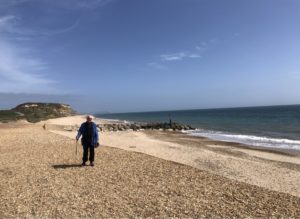
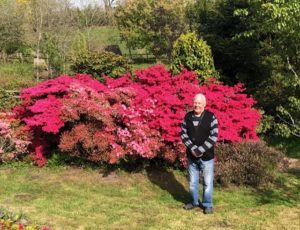
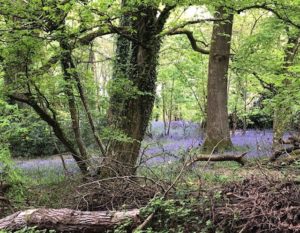
In my garden, the poppies come out: they are literally ‘here today, gone tomorrow’ – and when they stop flowering, one waits a further year for them to come again!!!
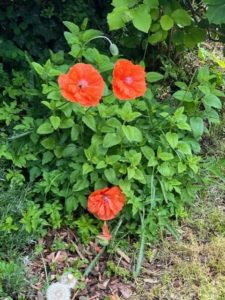
I also make it to Cornwall. Great sunsets at Lands End:


I do a tour of some pre-historic sites:
Courtyard round houses – about 2000 years old:
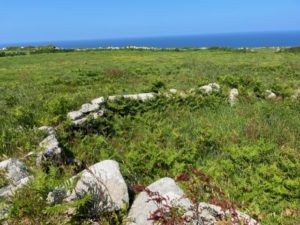

Barrows and standing stones – about 3500 years old:
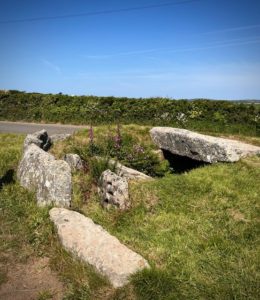
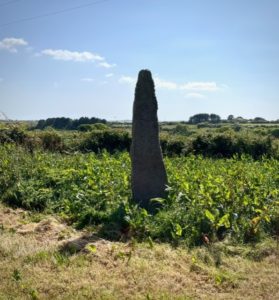
Quoits – the oldest of the lot – 5000 years old.
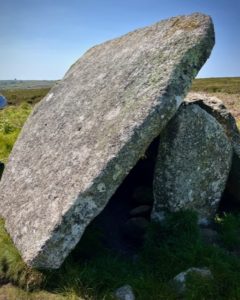
Curiously, we know almost nothing of the cultures, which gave rise to these constructions – save some seem to be on Moon/ Sun/ Season orientations. One must remember the sky was very intimate to them – they did not know that stars were billions of light years away. One might also think that they had better things to do than heap huge stones into such constructions – like living and eating – but apparently not. These things were important to them.
Beautiful Spring flowers everywhere:

I also visit the Lizard – the most southerly place in England – amazing colours here.
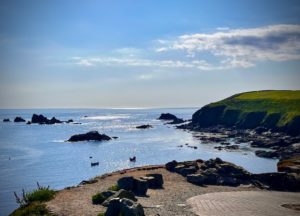

There is a exhibition at the Penlee of Lamorna artists: and not the usual Lamorna Birch, Law, etc. paintings. For example, Marlow Moss (a fascinating painter) and Ithell Colquhoun:
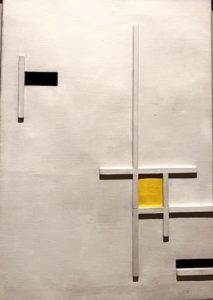
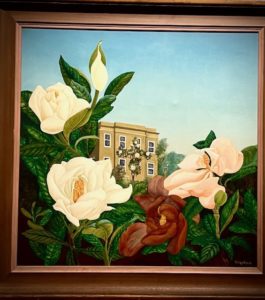
– check out my article about the latter:
http://www.michaelgrenfell.co.uk/ithell-colquhoun-painter-surrealist-feminist-magician/
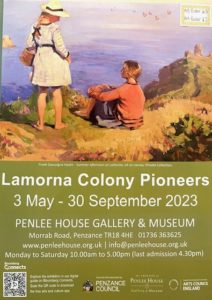
Some nice craft jewelleries from Ella Napier – a significant figure in the community:
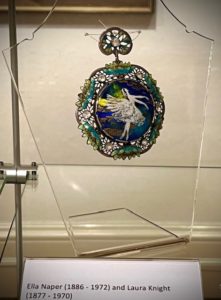
A visit to my home village of Mousehole, of course:
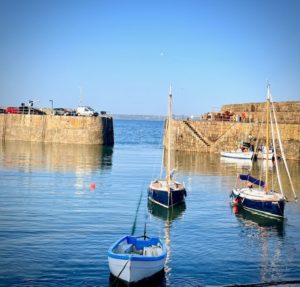
Finally, some more beautiful views in one of my favourite places – Gwithian:
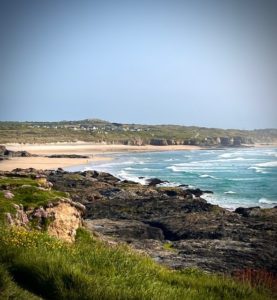
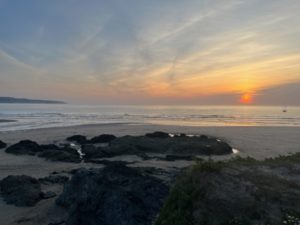

The beginning of the month saw the Coronation of the new monarch: King Charles III:
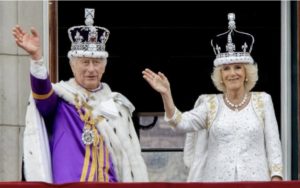
Quite a sight. I was not particularly interested, but then began watching and was absorbed. One notices all sorts of things that were not anticipated: like the only time Charles smiled was when the Gospel group sang.
I am not a monarchist. But, there seems a curious logic in having a Crown who both has ultimate power and no power. This is where logic breaks down: in theory, an elected president would be preferable, but the latter do not have a great reputation – many autocratic and dictatorial presidents in the world. Almost as if we are not yet developed enough to accept the responsibility of democracy.
Very good new production of Shakespeare’s Much Ado about Nothing on National Theatre at home:
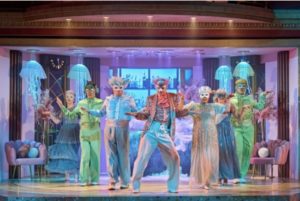
I have been reading On the Origen of Time : by Thomas Hertog. An amazing account ‘the history of time’. Hertog worked with Stephen Hawkings and presents their latest thinking before the latter died. Curious concepts: the universe began minutely small and fantastically hot. There was no ‘beginning’ as such since time and space were the same. After the beginning the universe expanded fast but then slowed down and then expanded fast again. No-one knows why it slowed down but the cosmoses we know – including the earth’s – would not exist if it had not. One would think something projected out would slow down but actually the universe is expanding fast. But, it is space that is expanding not the speed of the objects in it!! Time as we experience it does not exist.
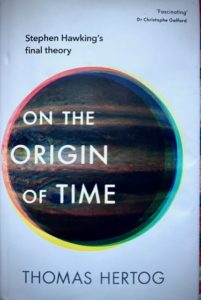
Music from Jasdeep Singh Degun:

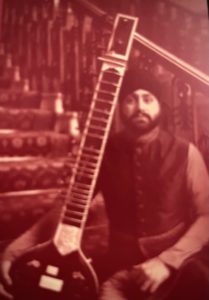
I do not normally like ‘fusion music’, but this collaboration between a classical Indian sitar player and a group of classical musicians is very good:
https://www.youtube.com/watch?v=1p-FSO7-e8s
Reading Special
Lots of literary works and postings this month:
Guitar Craft Book
My Deluxe version of the GC was published. Just 23 signed and numbered copies : almost all are now sold.
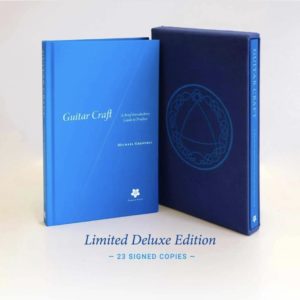
This book was a venture of the Pomera Press project I have been involved with:
The idea is to work outside of the commercial mainstream. After 25 books with commercial publishers, I have a need to work according to my own values. One of those is transparency. In this interests of this, I can say that production costs for this book were 3500 GBP and income was 1500. So, the challenge is how to be ‘non-profit’ without being a ‘charity’?
Conformist/ Non-Conformist Reponses to the Crisis in French Catholicism
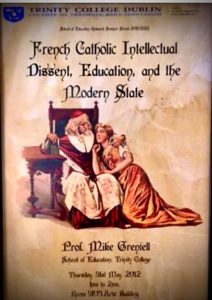
I have always been interested in the way ideas shape society and are shaped by it.
Here is my study of the way French intellectuals responded to the ‘crisis’ in French Catholicism. France was always an avowedly Catholic country, partly as a result of its traditional, rural population.
However, from the C18 and C19 centuries, there was creeping, and then accelerating, secularization – what they called ’dechristianisation’. Invariably, this went with urbanization: the move from country to town and the destruction of traditional social structures, and with this beliefs.
This study sets out the situation; tracks the response of the Church to it – in the form of a series of ‘missions’ and Christian groups, and then the so-called ‘non-conformists’ of the 1930s. The latter responded both to the processes of secularization and what to do about it, and also flirted with alternatives to American Capitalism: Communism and Fascism.
Many projected a position of ‘Ni droite, ni gauche’, politically (neither right, nor left’. They were also ‘revolutionary’ – but of the spirit. A common theme was ‘ L’épanouissement de la personne’ – literally, ‘the blossoming of the person’ – or soul. How to bring this about through a range of social movements is also included in the study – like the ‘Peuple et Culture’ group who set about developing a series of adult education (educationpermanente) groups to develop the cultural dimensions of French citizens (reading, photography, tourism, art, music, etc.) These were the precursors of the ‘Maisons de la Culture’ of the early 5th Republic.
There is also an account of the “Prêtres ouvriers’, where ‘worker priests were employed in factories to animate religious aspects of work life; offering Mass during the lunch breaks, etc.
See here: http://www.michaelgrenfell.co.uk/intellectual-response-the-crisis-in-french-catholicism/
See also chapters 3 and 4 of my book: Bourdieu’s Metanoia (2023 Routledge).
http://www.michaelgrenfell.co.uk/metanoia-and-bourdieu/
The Linguistic Corpus of Orléans: A Bourdieusian Analysis
In memory with gratitude to my friend and mentor Michel Blanc
I began my studies in Applied Linguistics with little or no intention to continue my work with the social philosophy of Pierre Bourdieu. However, it once again became immediately obvious that Bourdieu’s thinking about language was so much ahead of what was taken as orthodox linguistic study. His critique of Chomskyan transformational grammar was a case in point: a theory in search of a practice, or the study of something that simply did not exist. More on all this here:
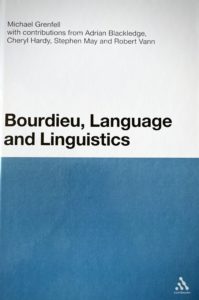
Which is how I was confronted with a cupboard with hundreds of real-to-reel tapes in it at the University of London. They originated from a Sociolinguistic corpus that had been collected in Orléans, France in 1969. This had been a major undertaking, supported by large amounts of State sponsorship. The planning team had included Bourdieu and my then lecturer and mentor Michel Blanc. Various questionnaires (Sociolinguistic, Open-ended, and Close-ended) had been administered to a sample of 600 of the Orléans populace, of which 147 were finally also interviewed and recorded. The sample included individuals from across socio-economic categories, from manual and service workers industrial and commercial executives. But, then, the recordings, etc. had more or less been left…
Details of my study are set out in the extracts that follow. There are many academic issues about the theory and practice of language, its variability, what is legitimate language within one context and another, and how social provenance affects all this. These are explored in the text from a Bourdieusian perspective.
I worked with a smaller sample of the corpus – about 20 individuals. My approach was first to analyse their responses to the sociolinguistic questionnaire: what they thought about ‘good’ speech, the use of dictionaries and fountain pens, who spoke best in the neighbourhood, etc. But, I also undertook various analyses of their actual language use: incidents of elisions and liaisons in their speech, syntax, cohesion and semantic formulations, etc. There was also some correlation across these various studies.
It was fascinating listening to what they had to say. The ‘events’ of Mai 1968 were only a year passed and they had all had plenty to say about them. One could also grasp a whole different relationship to language – say between a rich manual worker made good and a secretary. In this way, it was possible to show that language use does not always correlate with economic capital – cultural capital was the main influencing factor! Luckily, Michel had already done some work with another mentor of mine – Alex Mullineaux – in combining occupational and educational capital within the corpus. I used their work.
At one point, the respondents were asked how you make an omelet: theory, practice, and language. I actually recorded these extracts and was intending to do a PhD on a study of the sociolinguistic variation within – but that is a story……
I was lucky enough to be able to speak to Bourdieu about this work both as it was proceeding and the final results I came up with. At the time it was a unique study – left, like so many others – underdeveloped. The study was very labour intensive. I spent hours and hours listening to tapes, rewinding, listening again, transcribing, with a counter in hand. As Bourdieu often said to me, working with empirical data with his approach was ‘très coûteux’, Indeed!!!
I set my work against the whole sociolinguistic versus social psychology debate; also sociology of language itself; and writers exploring the ‘symbolic value of language’ (the original title of the research) – Sankoff, Thibaut, etc.
See here: http://www.michaelgrenfell.co.uk/the-linguistic-corpus-of-orleans-a-bourdieusian-analysis/
The Notebook of Kathryn Hulme
Kathryn Hulme (1990 – 1981) was an American novelist. She is best known for writing The Nun’s Story. However, she was also a student of Gurdjieff and a member of The Rope – the all-female Movements Group based in Paris.
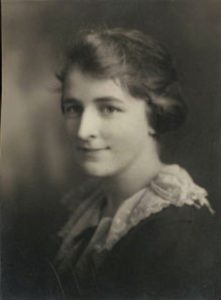
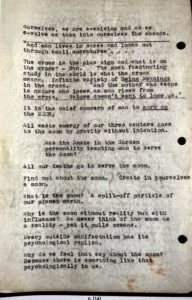
I came across her Notebook on Gurdjieff’s ideas, which make for interesting reading:
http://www.michaelgrenfell.co.uk/notes-on-the-teachings-of-gurdjieff-kathryn-hulme/